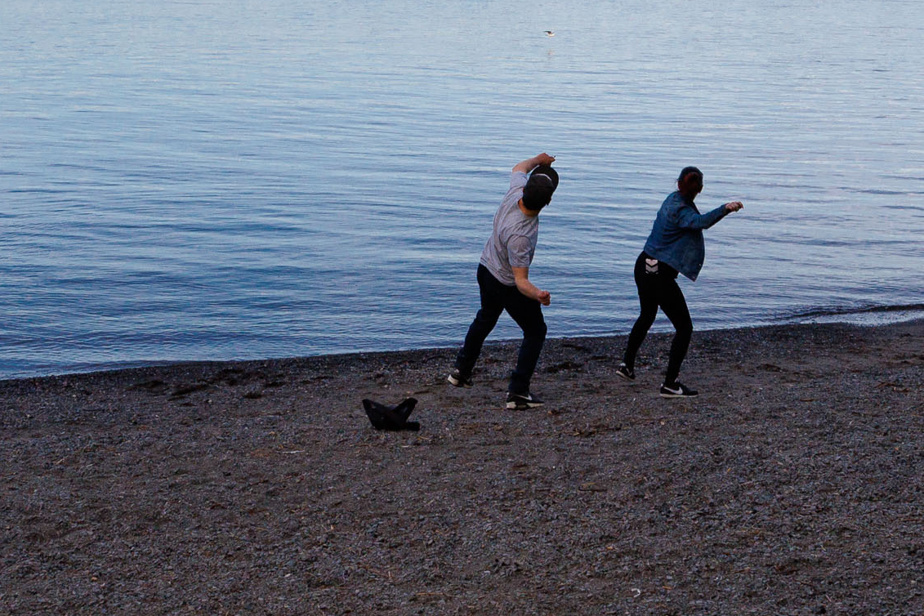The Plante administration’s commitment to providing swimmable access to the river in eastern Montreal is in serious trouble, two years after its promised opening date.
The chosen location, the Promenade-Bellerive park, is still closed to swimmers, indicates a sign installed by the City. And for good reason: local public health fears that swimmers could make themselves ill and Ottawa is concerned about the consequences of their presence on an endangered species of fish, according to documents from last spring obtained by La Presse.
All these stakeholders discussed the matter on April 4 because the City wanted to be able to allow swimming from this summer, reveals a meeting report written by an official.
“The [Montreal] regional public health department indicates that, based on the information submitted, a notice recommending a ban on swimming in 2024 will be produced and disseminated,” the document states. “Indeed, the location on a former waste disposal site with no soil cover measures, the presence of volatile organic compounds and the presence of an outfall with a defective valve immediately upstream of the site are some of the reasons that justify this recommendation.”
Fisheries and Oceans Canada, for its part, has expressed significant reservations about the project due to the nearby presence of seagrass beds frequented by the copper redhorse, a fish which “is only found in Quebec” and which worries biologists. The Quebec Ministry of the Environment was also concerned about “a significant number of spills at the Port of Montreal”, just upstream.
In 2021, in the middle of the electoral campaign, Valérie Plante seemed confident in summoning the media to the Promenade-Bellerive park.
“Projet Montréal is committed to providing access to water and swimming at the Promenade-Bellerive park from the summer of 2022,” the political party then indicated. “Starting next year, Montrealers will be able to swim there in complete safety. For our team, access to our banks and waterways is a priority,” promised Ms. Plante.
On Thursday, the mayor of the local district indicated that the file was more complex than expected.
“It’s an extremely laborious process that involves several provincial and federal government agencies and departments, each having a say,” he added.
Mr. Lessard-Blais said he was disappointed by the criticism expressed by Public Health towards the project, to the extent that swimmers are already defying the ban on wet bathing. “Access to water exists whether we like it or not,” he said. “We respect the skills of the regional public health department, but it must be said that it is disappointing to be asked for more work, when we simply want to improve the safety of an already existing situation. »
A complete riverbank restoration project is planned for the turn of the decade.
The official opposition sees things differently.
“It demonstrates the total amateurism of the Projet Montréal administration, both in the borough and in the city center,” attacked Tétreaultville elected official Julien Hénault-Ratelle, who no longer entertains the idea of being able to swim in the short or medium term at the Promenade-Bellerive park. “They made a promise without ensuring it was achievable. »
Mr. Hénault-Ratelle also deplores the fact that Mr. Lessard-Blais’ team has started to develop the beach, which could lead some to believe that swimming is permitted. In the access documents, the Quebec Ministry of the Environment also underlines the carrying out of “work which would have been carried out without authorization”.
The regional public health department declined La Presse’s interview request for the moment, explaining that it had to continue its work.
The organization “will soon make public an opinion on the health risks posed by the project to develop a public beach in the Promenade-Bellerive park,” indicated public relations advisor Marianne Paquette. “This opinion, which is in the process of being finalized, aims to inform decision-makers and the population of the health risks present on the site and to issue recommendations to ensure safe access to the site and swimming for the population. »




